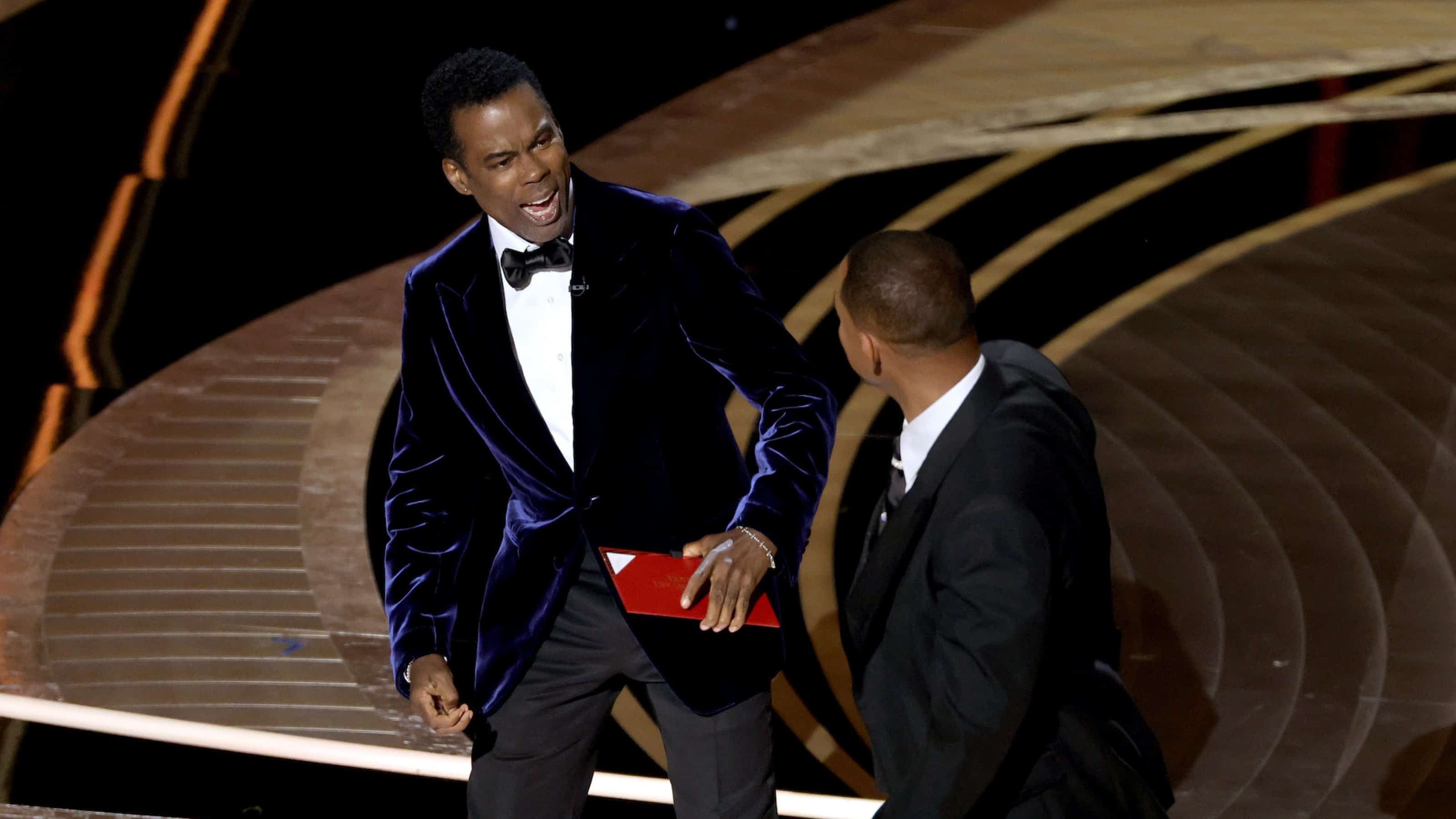Opinion: With the Will Smith and Chris Rock altercation, it’s clear the Oscars have lost their relevance

Last night, after Will Smith hit Chris Rock for making an ill-advised joke about his wife Jada Pinkett Smith, the comedian, clearly at a loss for words, declared the 94th Academy Awards to be “the greatest night in the history of television!” Sure, it’s a contender, gathering by the endless memes and think pieces on social media today, but for the Oscars, it’s pretty much a death knell.
There once was a time when the Academy Awards were revered, but in recent years they have been fighting a losing battle to stay relevant — with 2021’s viewing figures hitting an all-time low. Yesterday’s event only proved that the Academy has failed to pivot to modern audiences and their viewing appetites in the age of social media. The main talking points today were not the films, nor the wins or the snubs, it was the viral moments; Smith, Rock and Pinkett-Smith, Nicole Kidman’s shocked reaction to said incident, Bill Murray running past the red carpet… The list goes on. But with the advent of social media, limitless streaming options, and dwindling attention spans, is it any wonder that the focus of the Oscars is no longer the actual content but 10-second viral soundbites that satiate our need for drama?
Speaking to HUNGER, cultural commentator and podcaster Abby Gardner points to the Covid-19 pandemic for accelerating a larger shift here. “The pandemic has shifted both people’s perspectives on what they care about, but also how they’re taking in content and being exposed to what’s out there. We simply haven’t been going to the movies in the same way,” she says. “People of all ages just consume content differently now, and long, formulaic awards shows just aren’t top of mind amid the endless things one could choose to watch on a Sunday night — especially when you know you can catch any must-see moments in clips on social media.”
The main audience drop-off is within the Gen Z and Millennial cohort, as expected. Known for being more socially conscious, they witnessed the #OscarsSoWhite scandal and its long aftermath. Back in 2015, Twitter user April Reign first used the hashtag in response to all 20 acting nominations being given to white actors. It went viral as social media users and industry heavyweights alike denounced the ceremony’s historic lack of diversity and demanded a change within the majority-white voting body. One year later, the hashtag started trending once more when the Academy announced its acting nominations, which were all-white again.
“There are a lot of qualities about the Oscars — including the lack of representation and the handling of diversity — that make it feel like a dinosaur,” the host of the We Have Notes podcast comments. “There’s not a lot about the Oscars right now that would seem super appealing to Gen Z, and that’s not to say that they need to totally twist themselves into knots to be that way. The show doesn’t need to look or feel exactly like TikTok, but when it is very blatantly not inclusive, that can be a real turnoff to any number of potential viewers.”
Have things got better? Somewhat. Last night, Ariana DeBose made history by being the first queer person to win an Oscar (Best Supporting Actress for West Side Story) and Smith became the fifth Black man to win a Best Actor Oscar (King Richard), which he, of course, preemptively overshadowed by that now-infamous slap. In another win, Coda, the first film to focus on deaf characters and receive ample distribution, also became the first of its kind to win Best Picture. “They have definitely tried to make moves in the right direction, as in inviting younger and more diverse members into the fold. This affects the types of films that get nominated and what eventually wins and you can start to see some shifts there,” Gardner says, adding that this year we also saw three female hosts, Wanda Sykes, Regina Hall and Amy Schumer, who “didn’t at all look or identify the same way as you might imagine an old Academy member would look like.”
With diversity slowly improving, but not fast enough for the likes of Millennials and Gen Zers, it’s no surprise that all the wins and the ceremony writ large were overshadowed by one viral incident and several smaller ones. Of course, there’s no world in which the altercation between Smith and Rock wouldn’t have gone viral and prompted much dissection, but this year, in particular, it seems to be the main takeaway of a night that should have been about more than just celebrity.
It’s difficult then to envision how the Academy can quickly pivot to reclaim both relevance and respect, without a complete overhaul. For Gardner, trying new things is a start. “The Academy gets in its own way a lot of the time, in my opinion. The unwillingness to really try new things is a bummer. Let’s try breaking the mould of the ‘way it’s always been’. Could we shake up the categories and add some new ones? Isn’t there room for genderless performance categories? Couldn’t we have more fun with the way we celebrate the magic of movies with non-traditional montages or performances? Could we bring in some brilliant young creatives?”
It appears that the tricky balance the Academy needs to navigate is finding a way to let its stars shine while ensuring its programming is not only up to scratch, but original, innovative and wholly in touch with the current climate. But as Gardner concludes, this shouldn’t have been such a hard ask in the first place: “Hollywood is a town that makes magic happen and it’s always strange to me that they can’t figure out how to bring that to the show that’s all about movies.”

